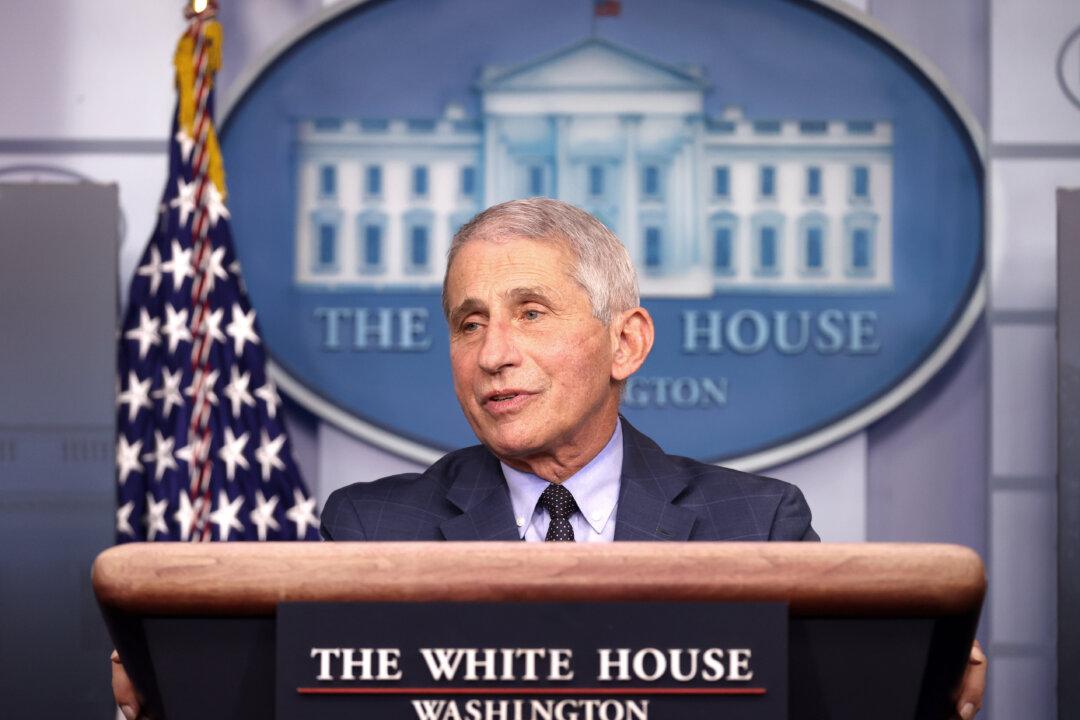Dr. Anthony Fauci, director of the National Institute of Allergy and Infectious Diseases, has again changed his perspective on the COVID-19 herd immunity threshold in the United States, saying that his previous figures were “guesstimates.”
Fauci in an interview on Dec. 27 defended shifting his projections about herd immunity for COVID-19, the disease caused by the CCP (Chinese Communist Party) virus.





